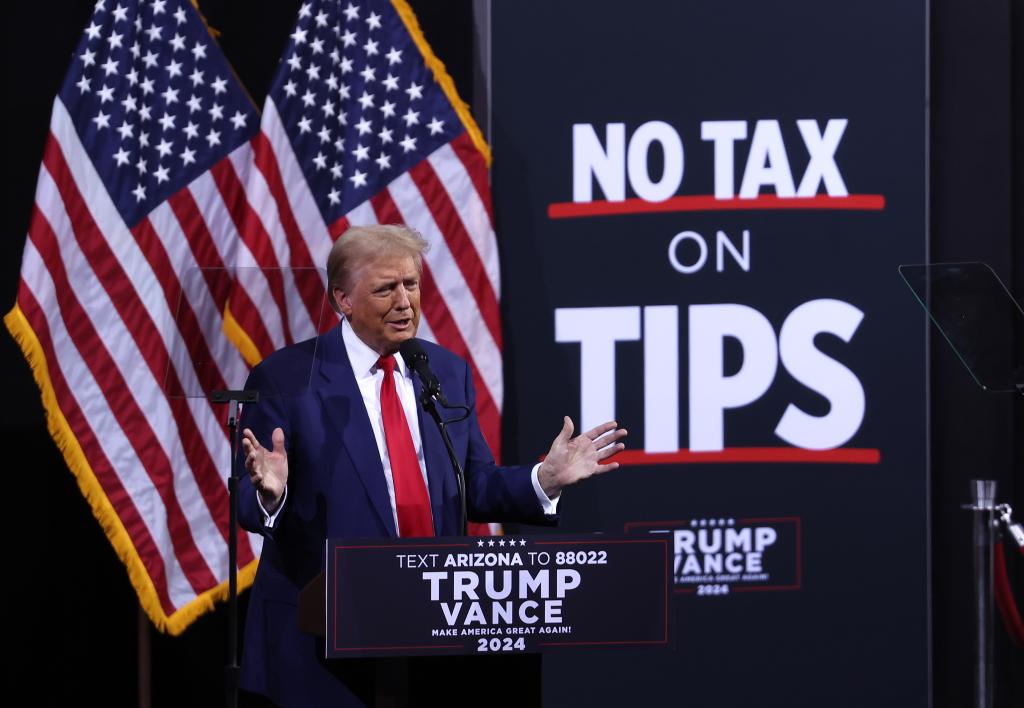Donald Trump has been proposing aggressive tax relief measures to alleviate the burden on actual working people. One of his latest proposals includes eliminating taxes on tips, which has gained support from politicians like Kamala Harris. This is seen as a smart policy move and demonstrates Trump’s willingness to think outside of conservative orthodoxy. Another proposal from Trump is to eliminate taxes on overtime, acknowledging the hard work put in by those who work extra hours to make ends meet.
While Trump’s tax relief proposals have focused on traditional employees, there is a group of hard-working individuals who have been neglected – the Uber drivers, DoorDashers, and professional freelancers. These individuals often work without the protections of traditional employees and struggle to make ends meet. They face high expenses such as Medicare and Social Security taxes, which can lead to financial instability. Trump’s proposed tax relief measures do not currently address the needs of this group of individuals who also contribute significantly to the economy.
The gig economy has significantly grown in recent years, with many individuals turning to freelance work due to changes in the job market. However, these freelancers face challenges like rising costs of living and stagnant wages. They do not have access to benefits like overtime pay or tips, making it difficult for them to save for emergencies or invest in their future. Providing tax relief for freelancers could help address some of these challenges and provide them with a sense of security in an uncertain economy.
By focusing on tax relief measures for freelancers, Trump has the opportunity to reach a group of voters who may not typically be engaged in political discussions. Freelancers in battleground states and beyond could see Trump’s proposal as a way to support their economic well-being and vote in his favor. This could potentially create a significant number of voters who may have otherwise stayed on the sidelines during elections. Trump’s proposal offers a chance to propose meaningful tax reform that benefits a diverse group of individuals.
The lack of support for gig workers and freelancers in the tax code has created economic disparities and challenges for these individuals. As the economy continues to evolve, it is essential to address the needs of all workers, regardless of their employment status. Providing tax relief for freelancers would not only help alleviate their financial burdens but also create a more equitable tax system that supports individuals contributing to the economy in non-traditional ways. Trump’s proposals could offer a way for freelancers to have a voice in the political process and advocate for their economic well-being.
In conclusion, Trump’s tax relief proposals have focused on benefiting traditional employees, but there is a growing need to support gig workers and freelancers who face unique challenges in today’s economy. By addressing the tax burdens faced by freelancers, Trump can reach a group of voters who may feel overlooked by traditional politicians. Providing tax relief for freelancers would not only support their economic stability but also create a more inclusive and equitable tax system that benefits all individuals contributing to the workforce. Trump’s proposals offer a chance to engage a diverse group of voters and make meaningful changes to the tax code that support the needs of all workers.













